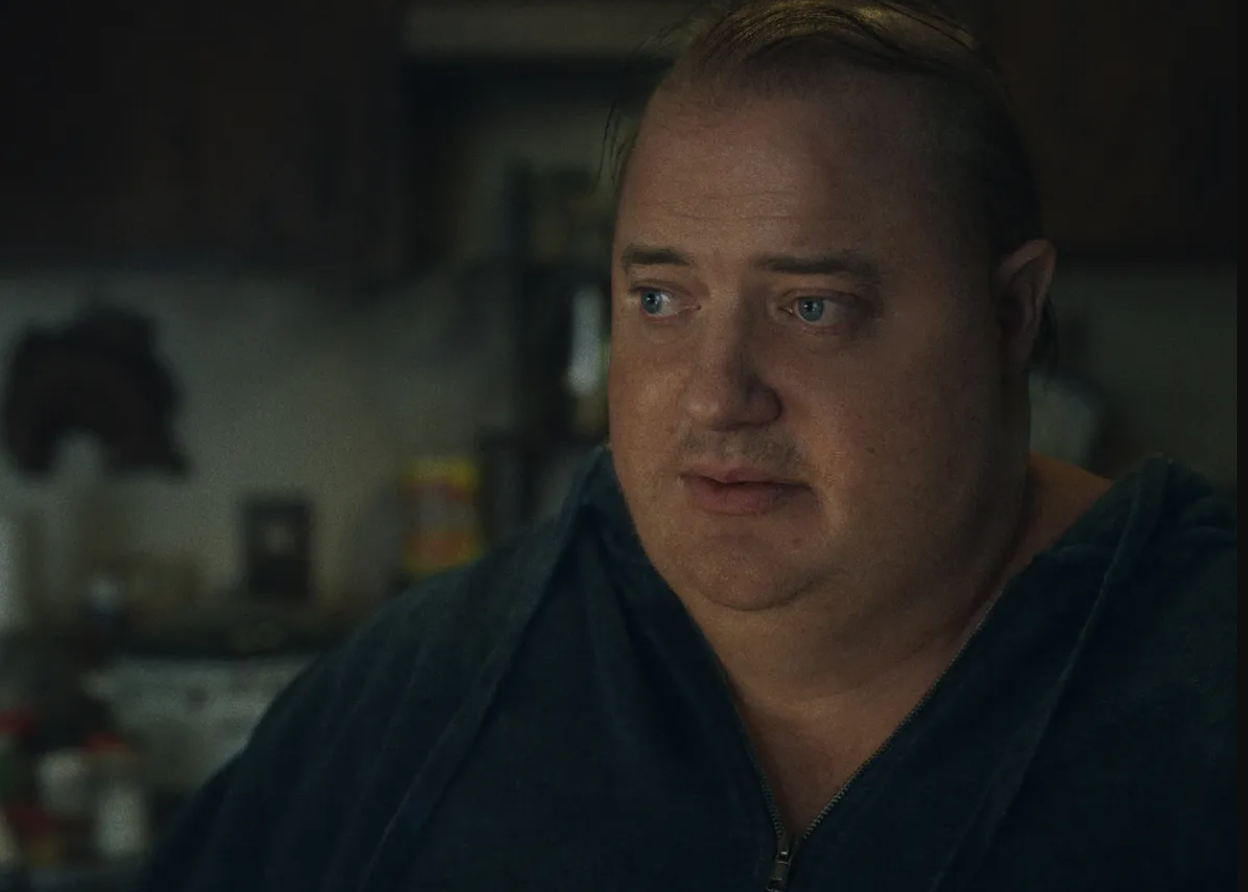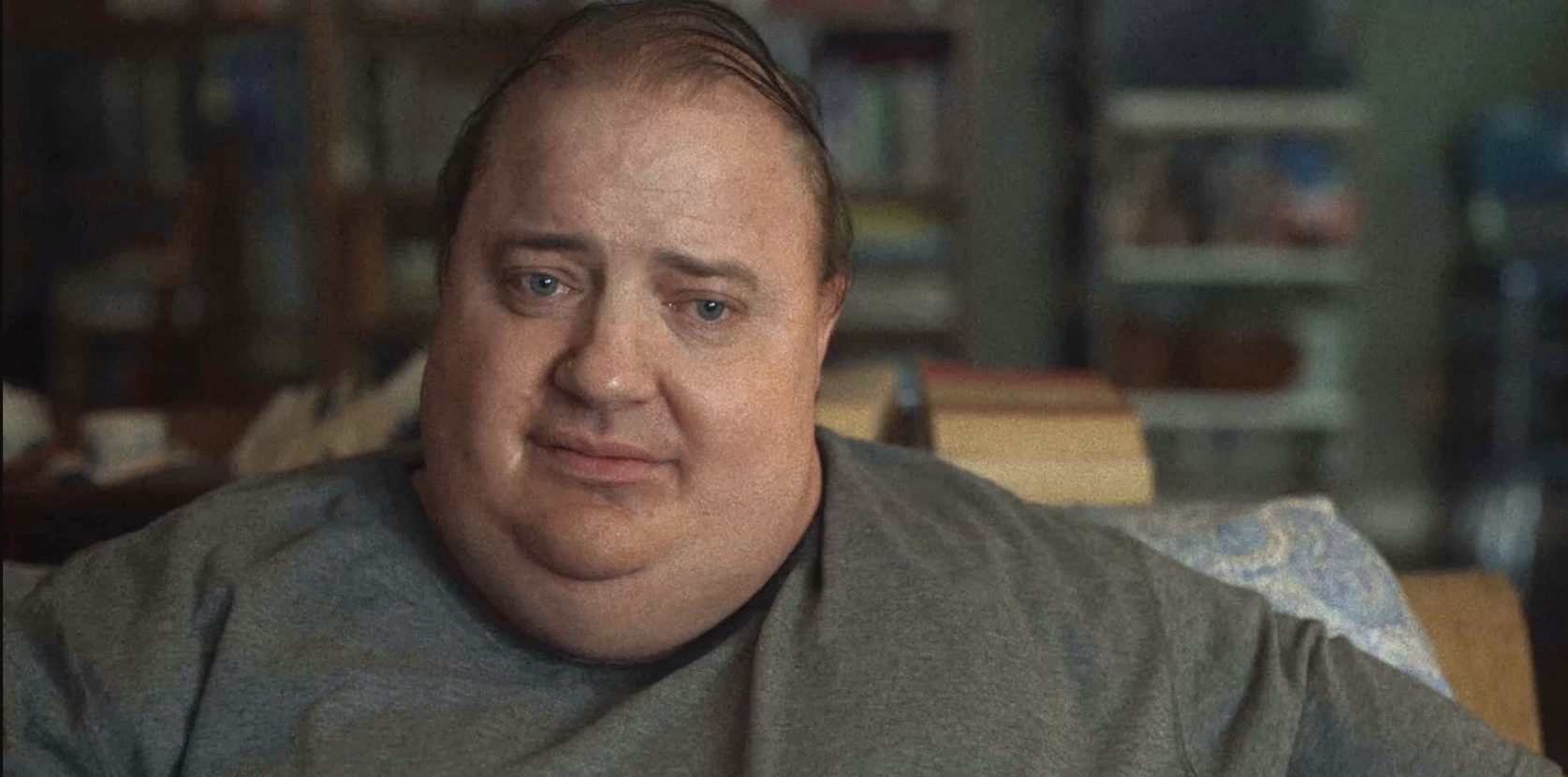Darren Aronofsky’s ‘The Whale’ follows the story of a man named Charlie who is days away from his death. He is obese and is taken care of by Liz, who keeps asking him to go to a hospital and get better. However, Charlie says that he doesn’t have the money or the insurance to cover the cost of his treatments. Over the next few days, he meets a young man who reveals himself to be a missionary and makes it his mission to save Charlie by making him accept Jesus. Charlie, on the other hand, just wants to reconcile with his daughter, Ellie.
The film presents a very heartbreaking portrayal of a man who is struggling with a lot of trauma and grief. Despite all the things that have gone wrong in his life, Charlie still keeps a hopeful attitude, towards others at least. By the end of the film, one can’t help but empathize with him. This connection with the actor also makes one question if he is inspired by a real-life person. Let’s find out.
Charlie Based is a Fictional Character
No, Charlie’s character in ‘The Whale’ is not based on a real person. The film is an original story, which was initially written for the play of the same name by Samuel Hunter. The idea for the story came to Hunter in around 2009 when he had been working as a writing teacher at Rutgers University. One day, Hunter got frustrated with his students and asked them to just write something honest. Much like Charlie does in the film, Hunter was not looking for something that was lengthy or conventionally good. He wanted his students to spill out the truth about them. That’s when one of the students wrote: “I think I need to accept that my life isn’t going to be very exciting.” This line hit Hunter so hard that it ended up in the story.

Hunter started writing a story from the perspective of a teacher who is in a similar state as his, trying to find some honesty in the works of his students and connecting with them. He added the detail of Charlie living with obesity out of his own experience. He set the story in his hometown of Idaho. The school that Hunter attended was evangelical Christian, so religion had an impact on his journey. He added that into the story through the young New Life missionary who knocks on Charlie’s door.
Hunter also revealed that he had struggled with depression in his young years and suffered from a severe case of eating disorder. “When I got to college, I just started falling deeper and deeper into depression, and—this is not everybody—but for me personally it manifested in pretty rapid weight gain throughout my early twenties,” he told the New Yorker. It took him ten years to completely shed all the weight that he had gained during this time, and it required a lot of support from his family and a therapist.
When he started writing Charlie’s character, he drew upon that time in his life and realized how much the support of his loved ones had mattered in turning his life around. He wondered what if he hadn’t received that help in time. What would have happened to him then? “My depression manifested physically as I self-medicated with food. Fortunately, I had support in my life. I had parents who loved me, and I was able to deal with some of my demons and go to therapy and become a healthier person. But ‘The Whale’ is about a person who didn’t have that support system,” he told Variety.
Once he lost all the weight, the playwright realized how different the world had started to see him. “When I lost the weight, I was shocked at how much nicer people were to me in general, like cashiers or people on the street. And gay men, I should say. It was really, really jarring. What would happen to me if I hadn’t turned that corner? If I didn’t have the support system? I was looking at the way I was gaining weight back then and how rapidly it was happening—I was, like, ‘This could have been me.’,” he said.
Calling it a story very personal and particular to himself, Hunter said that it is not supposed to reflect the experience of everyone else. “I arrived at it through my own personal struggles with it. This is just my story—plenty of people out there are big and happy and healthy and just fine and worthy of respect. But I was self-medicating with food, and it was hard for me to live in the world as that person. I’d never seen that story precisely told,” he said. With all this in mind, it is clear that Hunter wrote Charlie’s character and his story as an extension of his own experience. So, even though the character is fictional, his experience is rooted in reality.
Read More: Did Brendan Fraser Gain Weight for The Whale? Did He Use Prosthetic?


You must be logged in to post a comment.